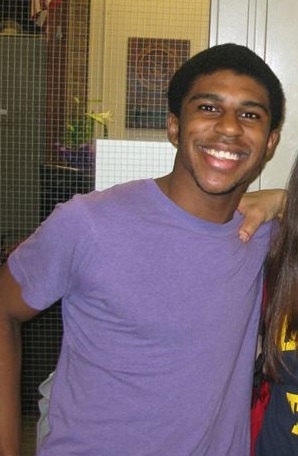By Marcus Greer

I was in Egypt a year before the Arab Spring and saw deeply rooted social divisions well before the country cracked like an egg in January 2011. I stepped off of the plane into blistering Egyptian heat to meet my tour guide, Tarek. I admired his incredible passion and broad mind. In addition to his encyclopedic knowledge about the country's history, he had volumes of criticisms about the Egyptian government. Between ancient monuments and inside archaic tombs, he allowed his contemporary protests to slip as whispers because, as he often said, "The walls have ears."
Tarek's ability to be so much more than his job title resonated with me. The versatility of his passions and his awareness mirrored who I am and who I am becoming. Tarek preached that Sadat was Egypt's only great president, and that "like all great men causing change, Sadat was doomed to be assassinated," which led me to a very simple formula, like Leibniz's energy equation. (rant = ½circumstance x frustration^2)
In his elegant rage, Tarek was more than a tour guide. He was a political philosopher, a storyteller, and a political activist and, inadvertently and ultimately, a model for my life. I have always been devoted to math and science, but this has never turned me off to history and humanities. In fact, I see the humanities as being imperative to my understanding of science. This inspires me to write English essays as parodies of scientific research, and Physics labs in the style of rich narratives. These combinations led to an unexpected discovery: imagining scenes with my physics material made it easier to relate to the subject, while a more systematic approach to literary analysis allowed me to more deeply scrutinize texts. The fact that a creative and a technical mind occupy space in the same brain seems an invitation to find ways to use them in tandem, not to build walls between them.
Tarek's ability to relate seemingly unrelatable concepts helped me see how important considerations of the human heart and mind are in relation to technology. Pointing to a complicated ancient sword called a khopesh, he told me it was an excellent tactical device, but it rarely brought the Egyptian army success because its soldiers had no idea how to use it. "Technology is the way of the future, but only when you create it with people in mind," he said, almost foreshadowing my experience in the Lemelson-MIT program. There, I am helping to design a GPS watch that will help caretakers keep track of Alzheimer's patients, who tend to wander off and get lost. I am on a team to provide a scientific solution to a human problem. In designing the product, we talked with people with early onset Alzheimer's. I saw they had a common fear of being trapped in their own minds. I presented to the team that we should strive to make our product empowering for the patient rather than making the watch seem like an invisible leash. I want the patient to look down at his or her wrist and think: "I have the freedom to safely leave my house." We continue to keep in mind these human fears and desires as we design the device.
As a person trying to gain a comprehensive understanding of the world, I cannot just stop at science. If science is the study of the universe and the humanities are studies of our place in it, is it not logical for me to have an appreciation for both? The two disciplines are inextricable. Still, some people prematurely dismiss my arguments for versatile interests and say, "Oh, so you don't know what you want to be?" That's fine. I just respond, "Oh, no. I am both an aspiring engineer and an aspiring renaissance man." The world is not made for people with one track minds, and I'm going to continue embracing this reality.
Marcus Greer, a graduate of Tenafly High School, is currently a freshman at Carnegie Mellon University.